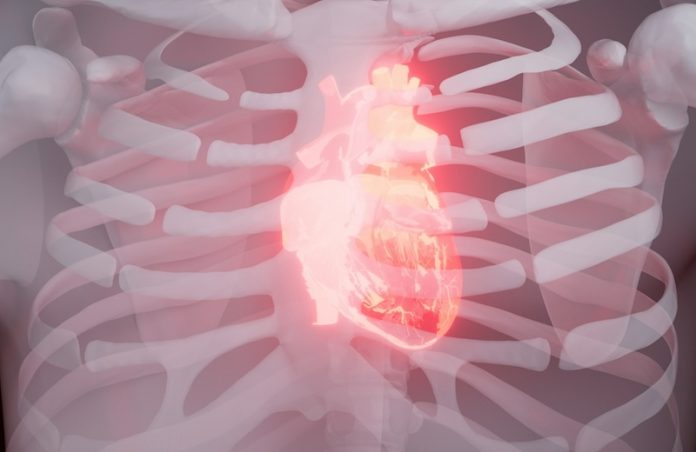
Scientists at New York University have uncovered a surprising role for platelets in heart disease. These tiny, sticky fragments of cells, best known for helping blood clot after an injury, are also a major trigger of inflammation that damages arteries.
The study, led by Dr. Tessa Barrett and published in Science Translational Medicine, offers new insights into how heart disease develops and progresses.
Heart disease, particularly atherosclerosis, is a leading cause of death in Western countries. Atherosclerosis occurs when plaques made of cholesterol, fatty materials, calcium, and other debris build up inside arteries.
Over time, these plaques harden and narrow the arteries, reducing blood flow and increasing the risk of heart attacks and strokes.
For years, the “Lipid Hypothesis”—which links high cholesterol levels to atherosclerosis—has been central to understanding heart disease.
While cholesterol certainly plays a role, it isn’t the whole story. This new research sheds light on how platelets contribute to the inflammation that fuels plaque formation.
The team discovered that platelets do much more than stop bleeding. When activated, platelets release inflammatory signals that attract immune cells, such as leukocytes, to areas of inflammation in blood vessels.
These signals help the immune cells stick to the vessel walls and move into the tissue, promoting inflammation and contributing to the development of plaques.
One key finding was the connection between platelets and a protein called SOCS3 (Suppressor of Cytokine Signaling 3). The researchers found that platelets regulate SOCS3 in immune cells, and this interaction accelerates the buildup of plaques.
Elevated levels of SOCS3 and increased platelet activity were observed in people with heart disease, including women who had experienced heart attacks and patients with atherosclerosis in their leg arteries.
Interestingly, the study showed that platelets’ role in atherosclerosis is separate from their role in forming blood clots. Even without clot formation, platelets significantly contribute to inflammation, highlighting their hidden role in the progression of heart disease.
This discovery provides a crucial link between platelet-driven inflammation, SOCS3 protein activity, and heart disease. It suggests that targeting platelet activity and its inflammatory effects could offer new ways to treat or prevent atherosclerosis.
By revealing how platelets contribute to inflammation and plaque formation, this research broadens our understanding of heart disease beyond cholesterol.
It also points to new potential therapies that could reduce the inflammatory response in arteries, offering hope for better management of this deadly condition.
If you care about heart health, please read studies that vitamin K helps cut heart disease risk by a third, and a year of exercise reversed worrisome heart failure.
For more information about heart health, please see recent studies about supplements that could help prevent heart disease, stroke, and results showing this food ingredient may strongly increase heart disease death risk.
Copyright © 2024 Knowridge Science Report. All rights reserved.



